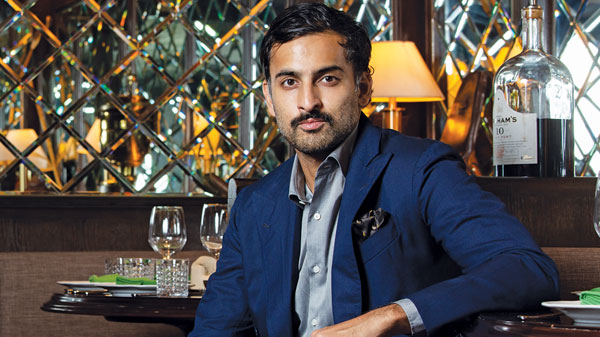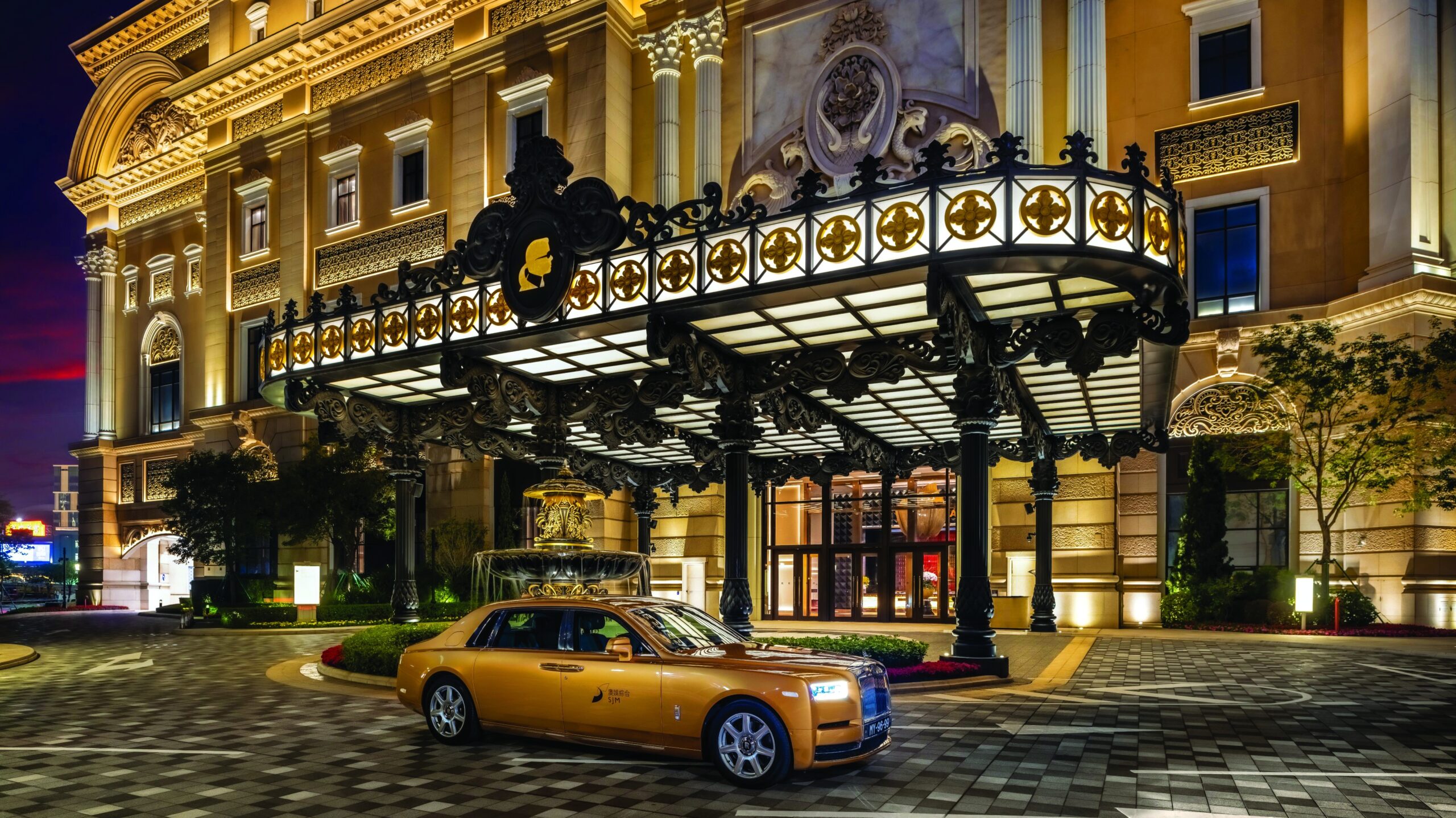
Head Baa Man
Syed Asim Hussian, Co-Founder of Black Sheep, Hong Kong’s most intriguing F&B chain, talks to Gafencu about the success of his restaurants and his role in it.
With your family already successful Hong Kong restaurateurs, did you always feel destined for the hospitality sector?
I have always felt like that. This business is in my blood and in my bones. My brother and I started working in my father’s restaurant when he was just 12 and I was just 11. Even at that age, I knew this business was all about looking after your customers and that’s always been how I’ve seen it. While outsiders often seem to think the restaurant business is all about fine wine, beautiful people and virtuoso music performances, it’s really not. It’s about you coming to my house, and me taking good care of you. If I look after you well, then you’re going to come back.

At university, you studied finance and international relations, rather than anything hospitality-focused. Was that a deliberate move?
If I’m honest, finance was a sort of a mistake, I fell into it because my university was primarily known for its business and engineering programs. As I had no aptitude for engineering, I naturally gravitated toward the business school. As to international relations, well that was more out of personal interest. To this day, global affairs and international politics continue to fascinate me and I still read every issue of The Economist from cover to cover.
After graduating, you worked in New York as banker. How did that experience shape your subsequent career?
Well, as I graduated in 2007, the financial crisis hit its height not long after I started work and banks were soon looking at cutting staff numbers. As I really didn’t want to be fired from my first job, I decided then that I had to be the best at everything I did – even if that meant, sometimes, being the best bagel runner. That is, basically, how I survived at the bank.
There was, however, something interesting happening in the restaurant world at about the same time. The traditional 7pm-11pm fine dining market was stagnating and people were just not spending as much on eating out as they used to. This, of course, was partly down to the fact that banks and consultancies had slashed their entertainment budgets. As a result, though, you started to see a number of restaurants emerging where the emphasis was on providing great value for money. I was on the sidelines of this but couldn’t help thinking what a great concept it was, while wondering if the concept could be replicated in my own home city.
This is what then led you to co-found Black Sheep Restaurants?
While I knew I was going to return to Hong Kong and test out this new idea, initially I had no intention of launching out on my own. My plan was to come back and relearn all the things I thought I needed to know. This led me to take up an apprenticeship with a prominent Hong Kong restaurant group and that was my life for about 18 months.
Although I had a vision of how I wanted to progress from there, for quite a while things failed to fall into place. I was then fortunate enough to meet Chris Mark, the guy who ultimately became my business partner. During our first encounter, he was actually quite disparaging towards me, even going as far as telling me he had lost money when he had bet I wouldn’t continue my apprenticeship after the first day. After that, though, we seemed to click and we soon realised we shared many similar ideas and had a similar approach to business. The rest, as they say, is history.

Black Sheep seems to pride itself on its embrace of a wide range of different cuisines, so how do you ensure they all remain authentic?
Honestly? We don’t try to. We have a creative resource, which is Chris and myself, that’s a blend of nostalgia, curiosity and pure fantasy. Whenever we try new things, it’s always that creative well we draw on. I also think that ‘authentic’ is something of a dangerous concept in this particular business. While we may have travelled to the home regions of many of the cuisines we have on offer, what we serve up is our interpretation of the various dishes and cooking styles we have encountered.
How do you gauge which particular dishes will be to the taste of Hong Kong diners?
I don’t. And I don’t much care either. We try to stay well away fads and short-term trends. We want to produce a menu that stands the test of time. Truly great restaurants are passed from one generation to the next and we hope that, long after we’re gone, Black Sheep will still be around.

Are there any prospective Black Sheep projects that you’re free to talk about?
The plan, right now, is to open six new sites in Hong Kong in the coming months, as well as one in Europe. That’s all I can really say right now. My hope, though, is that another explosive year is on the cards for the Black Sheep family.
What do you think is the biggest misconception diners have with regard to how the restaurant industry works?
I think, with the rise of social media where you eat, as well as where you shop, have all becomes part of people’s individual brand. Sometimes, though, people fail to understand that a passion for consuming something is not the same as having a passion for a particular business sector. Essentially, loving to drink coffee is very different to being passionate about selling coffee.

How have the long hours affected your personal life? Was it difficult to meet someone who tolerated the demands your business had on your time?
Basically, you have no personal life. We’ve been successful because we’ve sacrificed everything for the business. If you want a personal life or want to be able to take time off whenever you feel like it, then this is not the industry for you and nor are you likely to create a truly great company.
Finally, what other advice would you give to aspiring entrepreneurs?
The first thing I’d say is that it’s a mad pursuit and you have to be a little bit crazy to choose it as a way of life. Secondly, if you feel you have to ask for advice, then you’re too normal and you probably shouldn’t be doing this. Beyond that, true excellence lies in doing everything – even the smallest of things – correctly and consistently. It isn’t being a ‘nine’ one-day and ‘three’ the next, it’s about being at least a‘7.5’ every day.
Thank You
Text: Bailey Atkinson







